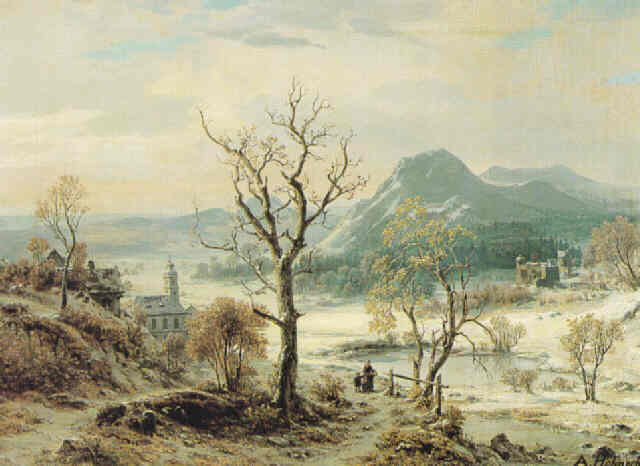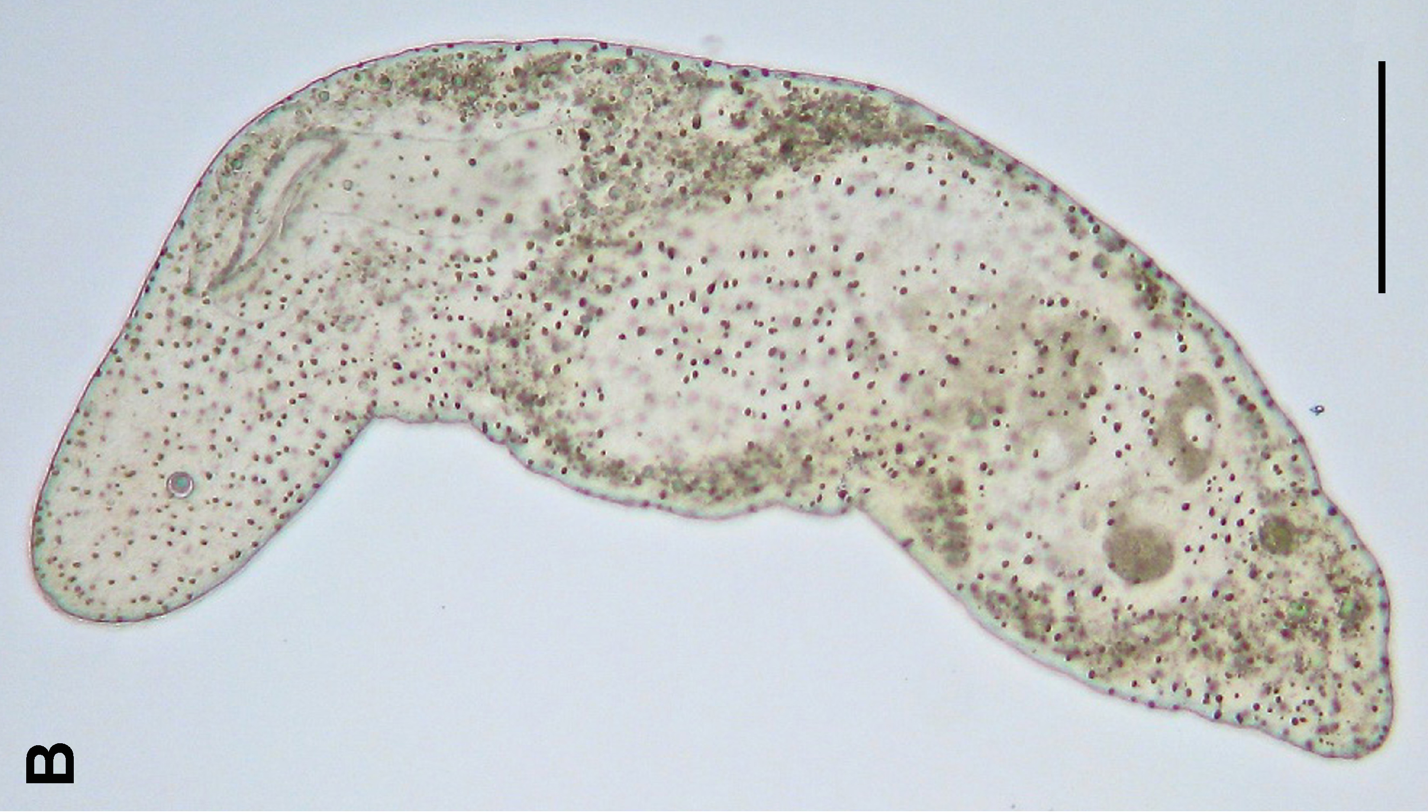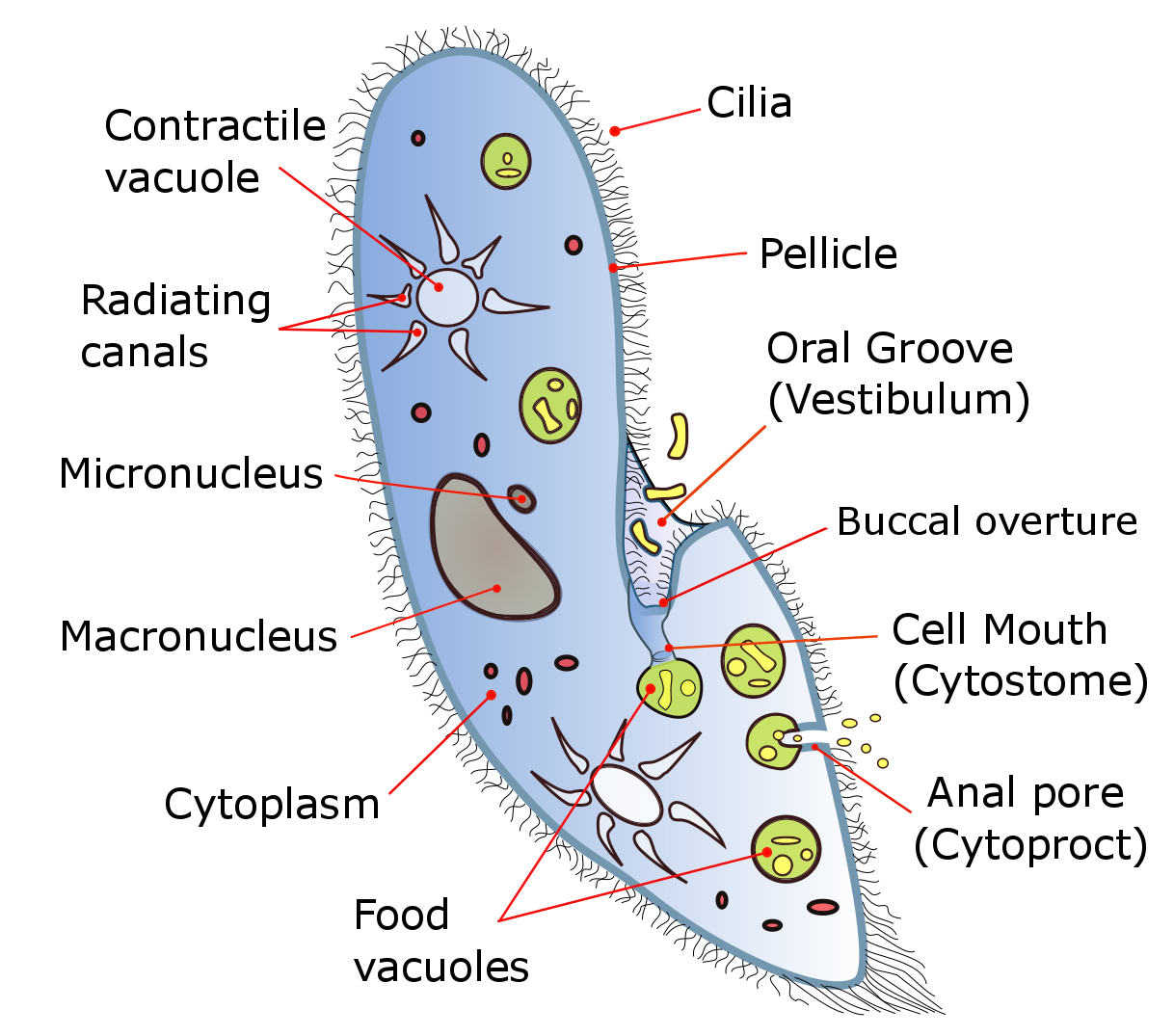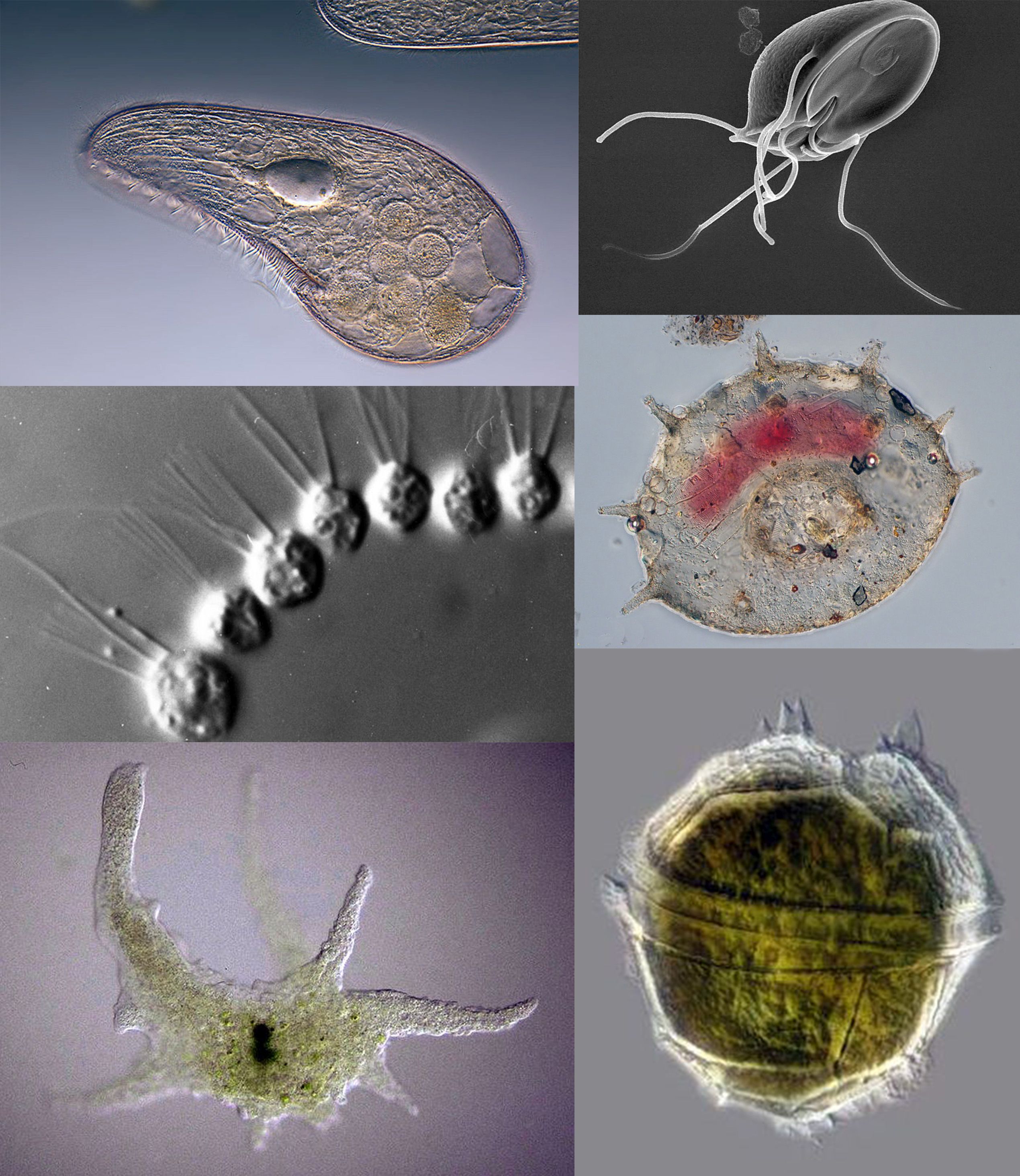|
Georg A. Goldfuss
Georg August Goldfuss (Goldfuß, 18 April 1782 – 2 October 1848) was a German palaeontologist, zoologist and botanist. Goldfuss was born at Thurnau near Bayreuth. He was educated at Erlangen, where he graduated PhD in 1804 and became professor of zoology in 1818. He was subsequently appointed professor of zoology and mineralogy at the University of Bonn. Aided by Count Georg zu Münster, he issued the important (1826–44), a work which was intended to illustrate the invertebrate fossils of Germany, but it was left incomplete after the sponges, corals, crinoids, echinoderms and part of the mollusca had been figured. A collection of Goldfuss' botanical specimens are housed at Bonn University. Goldfuss died in Bonn. In 1820, he coined the word '' protozoa'' to refer to single-celled organisms such as ciliate The ciliates are a group of alveolates characterized by the presence of hair-like organelles called cilia, which are identical in structure to eukaryotic ... [...More Info...] [...Related Items...] OR: [Wikipedia] [Google] [Baidu] |
Adolf Hohneck
Adolf August Hohneck (3 February 1810, Eibau - 2 February 1879, Oberlößnitz) was a German landscape painter, lithographer and graphic artist. Biography He studied painting at both the Dresden Academy of Fine Arts and the Kunstakademie Düsseldorf. He was primarily known as a landscape painter, although he also did portraits. In 1844, he created a series of lithographs, depicting the Professors at the University of Bonn. The Kupferstich-Kabinett, Dresden, and the Galerie Neue Meister have large collections of his lithographs and drawings. He was married to Marie Julie, née Müller (1836–1904). They had one son and four daughters and lived in Radebeul Radebeul ( hsb, Radobyle) is a town (''große Kreisstadt'') in the Elbe valley in the district of Meißen in Saxony, Germany, a suburb of Dresden. It is well known for its viticulture, a museum dedicated to writer Karl May, and a narrow gaug .... He died at the in nearby Oberlößnitz and was interred in the ceme ... [...More Info...] [...Related Items...] OR: [Wikipedia] [Google] [Baidu] |
Echinoderm
An echinoderm () is any member of the phylum Echinodermata (). The adults are recognisable by their (usually five-point) radial symmetry, and include starfish, brittle stars, sea urchins, sand dollars, and sea cucumbers, as well as the sea lilies or "stone lilies". Adult echinoderms are found on the sea bed at every ocean depth, from the intertidal zone to the abyssal zone. The phylum contains about 7,000 living species, making it the second-largest grouping of deuterostomes, after the chordates. Echinoderms are the largest entirely marine phylum. The first definitive echinoderms appeared near the start of the Cambrian. The echinoderms are important both ecologically and geologically. Ecologically, there are few other groupings so abundant in the biotic desert of the deep sea, as well as shallower oceans. Most echinoderms are able to reproduce asexually and regenerate tissue, organs, and limbs; in some cases, they can undergo complete regeneration from a single li ... [...More Info...] [...Related Items...] OR: [Wikipedia] [Google] [Baidu] |
University Of Erlangen-Nuremberg Alumni
A university () is an institution of higher (or tertiary) education and research which awards academic degrees in several academic disciplines. Universities typically offer both undergraduate and postgraduate programs. In the United States, the designation is reserved for colleges that have a graduate school. The word ''university'' is derived from the Latin ''universitas magistrorum et scholarium'', which roughly means "community of teachers and scholars". The first universities were created in Europe by Catholic Church monks. The University of Bologna (''Università di Bologna''), founded in 1088, is the first university in the sense of: *Being a high degree-awarding institute. *Having independence from the ecclesiastic schools, although conducted by both clergy and non-clergy. *Using the word ''universitas'' (which was coined at its foundation). *Issuing secular and non-secular degrees: grammar, rhetoric, logic, theology, canon law, notarial law.Hunt Janin: "The university ... [...More Info...] [...Related Items...] OR: [Wikipedia] [Google] [Baidu] |
People From The Principality Of Bayreuth
A person ( : people) is a being that has certain capacities or attributes such as reason, morality, consciousness or self-consciousness, and being a part of a culturally established form of social relations such as kinship, ownership of property, or legal responsibility. The defining features of personhood and, consequently, what makes a person count as a person, differ widely among cultures and contexts. In addition to the question of personhood, of what makes a being count as a person to begin with, there are further questions about personal identity and self: both about what makes any particular person that particular person instead of another, and about what makes a person at one time the same person as they were or will be at another time despite any intervening changes. The plural form "people" is often used to refer to an entire nation or ethnic group (as in "a people"), and this was the original meaning of the word; it subsequently acquired its use as a plural form of ... [...More Info...] [...Related Items...] OR: [Wikipedia] [Google] [Baidu] |
19th-century German Zoologists
The 19th (nineteenth) century began on 1 January 1801 ( MDCCCI), and ended on 31 December 1900 ( MCM). The 19th century was the ninth century of the 2nd millennium. The 19th century was characterized by vast social upheaval. Slavery was abolished in much of Europe and the Americas. The First Industrial Revolution, though it began in the late 18th century, expanding beyond its British homeland for the first time during this century, particularly remaking the economies and societies of the Low Countries, the Rhineland, Northern Italy, and the Northeastern United States. A few decades later, the Second Industrial Revolution led to ever more massive urbanization and much higher levels of productivity, profit, and prosperity, a pattern that continued into the 20th century. The Islamic gunpowder empires fell into decline and European imperialism brought much of South Asia, Southeast Asia, and almost all of Africa under colonial rule. It was also marked by the collapse of ... [...More Info...] [...Related Items...] OR: [Wikipedia] [Google] [Baidu] |
German Paleontologists
German(s) may refer to: * Germany (of or related to) **Germania (historical use) * Germans, citizens of Germany, people of German ancestry, or native speakers of the German language ** For citizens of Germany, see also German nationality law **Germanic peoples (Roman times) * German language **any of the Germanic languages * German cuisine, traditional foods of Germany People * German (given name) * German (surname) * Germán, a Spanish name Places * German (parish), Isle of Man * German, Albania, or Gërmej * German, Bulgaria * German, Iran * German, North Macedonia * German, New York, U.S. * Agios Germanos, Greece Other uses * German (mythology), a South Slavic mythological being * Germans (band), a Canadian rock band * "German" (song), a 2019 song by No Money Enterprise * ''The German'', a 2008 short film * "The Germans", an episode of ''Fawlty Towers'' * ''The German'', a nickname for Congolese rebel André Kisase Ngandu See also * Germanic (other) * ... [...More Info...] [...Related Items...] OR: [Wikipedia] [Google] [Baidu] |
German Mineralogists
German(s) may refer to: * Germany (of or related to) **Germania (historical use) * Germans, citizens of Germany, people of German ancestry, or native speakers of the German language ** For citizens of Germany, see also German nationality law **Germanic peoples (Roman times) * German language **any of the Germanic languages * German cuisine, traditional foods of Germany People * German (given name) * German (surname) * Germán, a Spanish name Places * German (parish), Isle of Man * German, Albania, or Gërmej * German, Bulgaria * German, Iran * German, North Macedonia * German, New York, U.S. * Agios Germanos, Greece Other uses * German (mythology), a South Slavic mythological being * Germans (band), a Canadian rock band * "German" (song), a 2019 song by No Money Enterprise * ''The German'', a 2008 short film * "The Germans", an episode of ''Fawlty Towers'' * ''The German'', a nickname for Congolese rebel André Kisase Ngandu See also * Germanic (other) * ... [...More Info...] [...Related Items...] OR: [Wikipedia] [Google] [Baidu] |
1848 Deaths
1848 is historically famous for the wave of revolutions, a series of widespread struggles for more liberal governments, which broke out from Brazil to Hungary; although most failed in their immediate aims, they significantly altered the political and philosophical landscape and had major ramifications throughout the rest of the century. Ereignisblatt aus den revolutionären Märztagen 18.-19. März 1848 mit einer Barrikadenszene aus der Breiten Strasse, Berlin 01.jpg, Cheering revolutionaries in Berlin, on March 19, 1848, with the new flag of Germany Lar9 philippo 001z.jpg, French Revolution of 1848: Republican riots forced King Louis-Philippe to abdicate Zeitgenössige Lithografie der Nationalversammlung in der Paulskirche.jpg, German National Assembly's meeting in St. Paul's Church Pákozdi csata.jpg, Battle of Pákozd in the Hungarian Revolution of 1848 Events January–March * January 3 – Joseph Jenkins Roberts is sworn in, as the first president of the ... [...More Info...] [...Related Items...] OR: [Wikipedia] [Google] [Baidu] |
1782 Births
Year 178 ( CLXXVIII) was a common year starting on Wednesday (link will display the full calendar) of the Julian calendar. At the time, it was known as the Year of the Consulship of Scipio and Rufus (or, less frequently, year 931 ''Ab urbe condita''). The denomination 178 for this year has been used since the early medieval period, when the Anno Domini calendar era became the prevalent method in Europe for naming years. Events By place Roman Empire * Bruttia Crispina marries Commodus, and receives the title of '' Augusta''. * Emperor Marcus Aurelius and his son Commodus arrive at Carnuntum in Pannonia, and travel to the Danube to fight against the Marcomanni. Asia * Last (7th) year of ''Xiping'' era and start of ''Guanghe'' era of the Chinese Han Dynasty. * In India, the decline of the Kushan Empire begins. The Sassanides take over Central Asia. Religion * The Montanist heresy is condemned for the first time. Births * Lü Meng, Chinese general (d. 220) * Pe ... [...More Info...] [...Related Items...] OR: [Wikipedia] [Google] [Baidu] |
International Microbiology
''International Microbiology'' is a quarterly peer-reviewed scientific journal published by Springer Science+Business Media and the official journal of the . It covers all aspects of microbiology. The journal was established in 1947 as ''Microbiología Española'' and renamed ''Microbiología SEM'' in 1985 before obtaining its current title in 1998. Abstracting and indexing The journal is abstracted and indexed in Science Citation Index Expanded, Scopus, Biological Abstracts, MEDLINE, and Excerpta Medica. According to the ''Journal Citation Reports'', the journal has a 2020 impact factor The impact factor (IF) or journal impact factor (JIF) of an academic journal is a scientometric index calculated by Clarivate that reflects the yearly mean number of citations of articles published in the last two years in a given journal, as ... of 2.479. References External links * English-language journals Open access journals Microbiology journals Publications established i ... [...More Info...] [...Related Items...] OR: [Wikipedia] [Google] [Baidu] |
Ciliate
The ciliates are a group of alveolates characterized by the presence of hair-like organelles called cilia, which are identical in structure to eukaryotic flagella, but are in general shorter and present in much larger numbers, with a different undulating pattern than flagella. Cilia occur in all members of the group (although the peculiar Suctoria only have them for part of their life cycle) and are variously used in swimming, crawling, attachment, feeding, and sensation. Ciliates are an important group of protists, common almost anywhere there is water—in lakes, ponds, oceans, rivers, and soils. About 4,500 unique free-living species have been described, and the potential number of extant species is estimated at 27,000–40,000. Included in this number are many ectosymbiotic and endosymbiotic species, as well as some obligate and opportunistic parasites. Ciliate species range in size from as little as 10 µm in some colpodeans to as much as 4 mm in length in some ... [...More Info...] [...Related Items...] OR: [Wikipedia] [Google] [Baidu] |
Protozoa
Protozoa (singular: protozoan or protozoon; alternative plural: protozoans) are a group of single-celled eukaryotes, either free-living or parasitic, that feed on organic matter such as other microorganisms or organic tissues and debris. Historically, protozoans were regarded as "one-celled animals", because they often possess animal-like behaviours, such as motility and predation, and lack a cell wall, as found in plants and many algae. When first introduced by Georg Goldfuss (originally spelled Goldfuß) in 1818, the taxon Protozoa was erected as a class within the Animalia, with the word 'protozoa' meaning "first animals". In later classification schemes it was elevated to a variety of higher ranks, including phylum, subkingdom and kingdom, and sometimes included within Protoctista or Protista. The approach of classifying Protozoa within the context of Animalia was widespread in the 19th and early 20th century, but not universal. By the 1970s, it became usual to require ... [...More Info...] [...Related Items...] OR: [Wikipedia] [Google] [Baidu] |



_1938.jpg)


